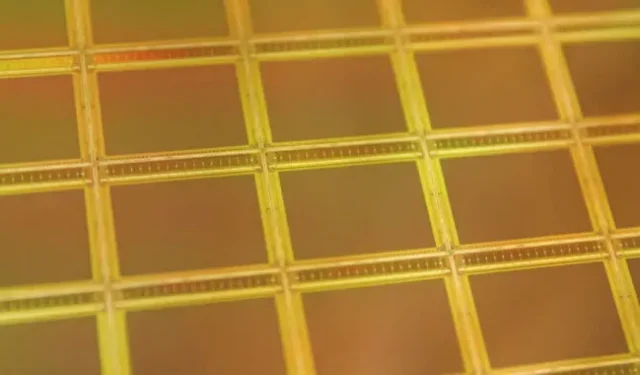Chip makers fight spreading US crackdown on ‘forever chemicals’

Intel and other semiconductor companies have teamed up with industrial materials companies to fight US bans on “perpetual chemicals”– substances used in many products that slowly degrade in the environment.
Lobbying efforts by chip makers are expanding opposition to new regulations and bans on chemicals known as PFAS. According to the US government, the substances were found in the blood of 97 percent of Americans.
More than 30 US states are considering passing legislation to combat PFAS this year, according to Safer States, an environmental advocacy group. Bills in California and Maine were passed in 2022 and 2021, respectively.
“I think clean drinking water and the ability for farmers to irrigate their fields is far more important than a microchip,” said Stacey Brenner, a Maine state senator who supported the state’s bipartisan legislation.
In Minnesota, bills are due to ban by 2025 some products that contain added PFAS — which is short for perfluoroalkyl and polyfluoroalkyl substances — in what is considered some of the toughest legislation in the country.
The Semiconductor Industry Association, which includes Intel, IBM and Nvidia, has signed letters against the Minnesota legislation, arguing that its measures are too broad and could ban thousands of products, including electronics. Chipmakers also opposed laws in California and Maine.
The backlash in the US echoes the controversy in Europe, where chipmakers have warned that a proposed PFAS ban would disrupt semiconductor supply.
According to a 2022 report from the US National Academy of Sciences, Engineering and Medicine, long-term exposure to PFAS can impair the immune system, slow infant and fetal growth, and increase the risk of kidney cancer in adults.
Widely used in products such as non-stick cookware, firefighting foam and ski wax, PFAS are also widely used in semiconductor manufacturing. Chip companies say that there are usually no alternatives to PFAS for their production.
“In the applications that I know of, there are no real substitutes available commercially,”said John Rogers, Moody’s Senior Vice President for Chemical Manufacturers.
State action comes when federal regulators are also trying to control PFAS. Last week, the US Environmental Protection Agency proposed limiting chemicals in drinking water, citing health risks. The proposal, which is open for public comment for 60 days, will result in new rules that the EPA wants to finalize by the end of this year.
If fully implemented, “the rule will prevent thousands of deaths and reduce tens of thousands of serious illnesses associated with PFAS,”the EPA said in a statement.
Intel has added PFAS to the issues it has lobbied for starting in 2021, according to federal disclosures. In 2022, the company helped launch the PFAS Sustainability Action Network, a lobbying group that opposed PFAS legislation in California and Minnesota. The organization’s chief executive, Kevin Fay, has been Intel’s external lobbyist since at least 2008, according to regulatory disclosures. The PFAS Sustainability Action Network also represents the Semiconductor Industry Association.
Fei said the companies are considering the EPA proposal. Intel declined to comment.
US PFAS rules do not yet pose a significant risk to semiconductor companies, Fitch Senior Director Jason Pompei said, but if the new rules are passed, the costs are likely to be passed on to consumers in the form of higher prices.
“There will be a tax to recover, which we hope will encourage innovation and alternatives to PFAS in semiconductor manufacturing,” he said.
Leave a Reply